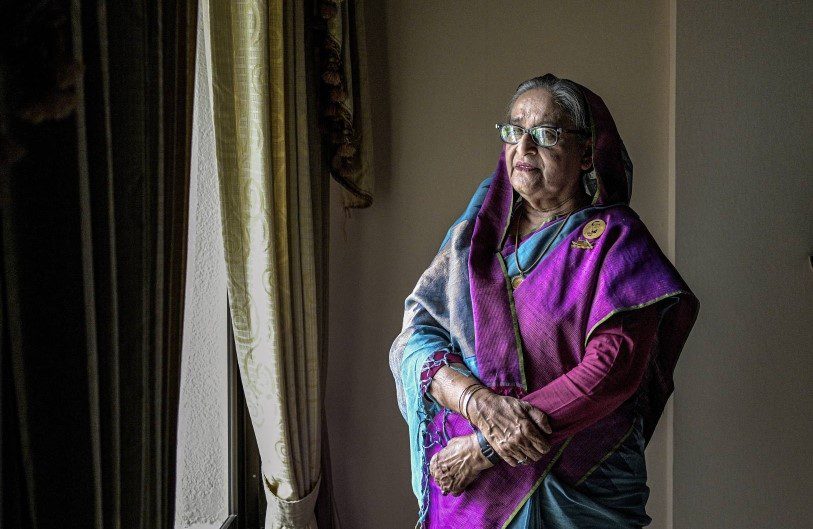The investigation agency of the International Crimes Tribunal (ICT) has submitted a report to the prosecution implicating ousted former prime minister Sheikh Hasina and two others in alleged acts of genocide committed during the July–August uprising.
This marks a major step in the tribunal’s expanded efforts to prosecute crimes against humanity beyond its original 1971 war crimes mandate.
According to Prosecutor Gazi MH Tamim, all relevant case documents and digital evidence were formally handed over to the prosecution on Monday.
The two other individuals named in the case are former Home Minister Asaduzzaman Khan Kamal and former Inspector General of Police (IGP) Chowdhury Abdullah Al-Mamun.
Both held senior positions in the previous Awami League-led government, which is accused of orchestrating a brutal crackdown on a student-led anti-discrimination movement during the final months of its rule.
The prosecution is currently reviewing and thoroughly scrutinising the details of the report submitted by the investigation agency. A formal charge sheet is expected to be filed with the tribunal upon completion of this review.
This is the second investigative report submitted by the tribunal’s investigation wing concerning the July–August incidents. An earlier report implicated eight police officers in connection with the Chankharpul killing case, which also occurred during the student-led uprising.
The allegations against Sheikh Hasina and others centre on their role in ordering and coordinating the use of lethal force against unarmed student protesters and civilians. According to reports from human rights observers and local sources, approximately 1,500 people were killed in the violent suppression of the protests.
On 18 February, the International Crimes Tribunal ordered that the investigation into the alleged crimes against humanity involving Sheikh Hasina be concluded by 20 April. The directive was issued by a three-member bench led by tribunal Chairman Justice Md Golam Mortuza Mozumder.
The order came in response to a petition filed by the prosecution, represented during the hearing by Additional Chief Prosecutor Mizanul Islam.
Earlier, on 17 December last year, the tribunal had instructed those investigations into two cases filed over the July–August genocide—naming Sheikh Hasina, Awami League General Secretary Obaidul Quader, and 46 others—be completed within two months.
The unrest culminated on 5 August, when sustained mass protests and public outcry led to the collapse of Sheikh Hasina’s 15-year tenure as prime minister. In the aftermath, a transitional government led by Muhammad Yunus assumed power. One of the interim administration’s key priorities was to pursue justice for the victims of the crackdown, leading to the tribunal proceedings currently underway.
The International Crimes Tribunal, established to try war crimes committed during Bangladesh’s 1971 Liberation War, has in recent years expanded its scope to include crimes against humanity arising in more recent political contexts. The trials related to the July–August events represent one of the most notable and controversial examples of this broadened jurisdiction.


